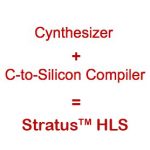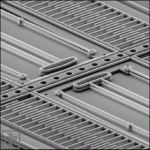You are currently viewing SemiWiki as a guest which gives you limited access to the site. To view blog comments and experience other SemiWiki features you must be a registered member. Registration is fast, simple, and absolutely free so please,
join our community today!
WP_Term Object
(
[term_id] => 157
[name] => EDA
[slug] => eda
[term_group] => 0
[term_taxonomy_id] => 157
[taxonomy] => category
[description] => Electronic Design Automation
[parent] => 0
[count] => 4406
[filter] => raw
[cat_ID] => 157
[category_count] => 4406
[category_description] => Electronic Design Automation
[cat_name] => EDA
[category_nicename] => eda
[category_parent] => 0
[is_post] =>
)
I had a meeting with Harn Hua Ng, the CEO of Plunify, a couple of weeks ago. They are an EDA company that I’d never heard of. Partially that is because they only play in the FPGA space, a country I visit less frequently than SoC land. Plus, they are based in Singapore, a country I have only been to a couple of times in my life.
Plunify… Read More
Semiconductor business is highly dependent on technology and that changes very rapidly in the semiconductor space. It’s important to recognize the importance of research and innovation activities in this space. In my last article on 7nm technology node, one respondent commented, very rightly, “It’s important to have competition… Read More
I recently returned from a trip to Southeast Asia, including Vietnam. The trip was for pleasure, not business, but I could not help but notice the boom in economic activity. The coastal cities of Hai Phong, Da Nang and NHA Trang were trying to outdo each other in building hotels, bridges and amusement parks – largely to cater to foreign… Read More
One thing to point out is that the CLK of CLKDA are the initials of the founders, they are not focused on clocks! I’m sure you can guess what DA stands for, although it is also the last two letters of the fourth founder’s name.
They have been in existence since 2005, backed by Atlas Ventures and Morgenthaler. They are headquartered… Read More
High Level Synthesis (HLS) tools have been around for at least two decades now, and you may recall that about one year ago Cadence acquired Forte. The whole promise of HLS is to provide more design and verification productivity by raising the design abstraction from RTL code up to SystemC, C or C++ code. With any acquisition it is natural… Read More
A webinar presented Last week introduced two free aids to evaluating synchronizer Mean Time Between Failures (MTBF). The first, MetaACE LTD, is used to characterize the intrinsic parameters needed to calculate MTBF (tau and Tw). This limited version of MetaACE supports up to 250 circuit nodes, which is enough for a typical C-only-extracted… Read More
One of the big challenges in designing ICs today is designing a robust power net capable of delivering necessary current levels to all areas of the die. Getting it wrong can, of course, lead to circuit failures that range from non-functional silicon, through intermittent performance and functional problems, to early EM-driven… Read More
Applications for IoT sensors are becoming more sophisticated, especially for industrial usage. Building optimal sensors for different applications requires multi-domain design, optimization and verification flows. The sensor devices are usually MEMS, and as such have electrical properties that need to be tailored to … Read More
Next week is the SPIE Advanced Lithography Conference in San Jose, the premier conference for advanced lithography used to produce state-of-the-art semiconductors. Last year I blogged after the conference about some of the key points I heard at the conference and this year I plan to do the same.
Last year’s blog is available HERE… Read More
Synopsys announced their results yesterday. Their 2014 already ended, this is the end of their fiscal first quarter. On the call were Aart, one of Synopsys’s two co-CEOs, the other being Chi-Foon Chan; and Trac Pham, the new CFO on his first earnings call.
Synopsys’s results were good. A quick look at the results. Revenue was $542M… Read More







Semidynamics Unveils 3nm AI Inference Silicon and Full-Stack Systems